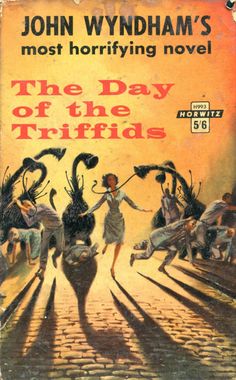Last week we talked about fast writing. This week I want to riff on some of those points we made.
For years now, I’ve maintained “The First Draft” is a myth. There’s no need for it or the accompanying second, third, fourth, fifth, etc drafts. The multiple draft approach is an Academic Belief System all wannabe writers are taught to believe by people who don’t write for a living. It has no basis in reality. At least the reality of those who write fiction for a living.
The belief system of Academia and the editors in the traditional publishing world believe this formula:
Slow Writing = Good Writing.
Or conversely, Fast Writing = Bad Writing.
This is a belief system. A religion. It is not The Truth. It has no basis in reality. It’s no different than belief in God. No one can prove there is or isn’t a God. One either believes there is a God or believes there isn’t one. Simple as that.
We writers can choose to believe the myth about fast and slow writing or we can choose not to believe it. For myself, I don’t believe it.
In high school and college, as a matter of course, mostly due to time pressure is my guess, I wrote out my papers and essays by hand. Then I typed them, editing as I went along. When I was done, I submitted. No first draft, second draft baloney. There was no time. And I’m pleased to say, I never got poor marks on my papers.
But for some odd reason, I didn’t apply that intuitive course of action to my fiction writing. I struggled trying to make it perfect. To do all of the “right” things. And consequently, I got nothing written.
Nearly 40 years ago now, I read a book on writing advice. I don’t remember the title, author, or anything about it except the summary of how Isaac Asimov wrote and his advice for writers. It went something like this:
- Write every day — whether or not you feel like it.
- Write simply.
- Forget the critics.
- Don’t rewrite. That’s what editors are for. This point was Asimov’s restatement of Robert Heinlein’s 3rd Rule of Writing, something I learned later. Asimov didn’t rewrite unless his editor demanded it. Asimov followed what, in business, is called the OHIO rule: Only Handle It Once. And it does work for writers. I practiced it with my essays for school.
- Don’t use an agent. Because you make more money if you don’t. I.E., you aren’t paying the agent his or her commission.
That book and the brief bit of information from Isaac Asimov was my first introduction to prolific writing. And I loved the concept!
But for some reason, I still didn’t apply it to my fiction. And nothing got written.
Later on, I learned about the Victorian speed demon, Anthony Trollope. I learned Heinlein’s 5 Rules of Writing. I was awed by the fabulous production of Robert E Howard in his very short writing career. And I learned one thing about myself: I needed to be like them. I needed to be a fast writer.
In 1989, I wrote a novel. The process took me a year. I didn’t really know what I was doing. But I did get it written while working full time and learning the ins and outs of raising a very young child. After a few rejections of my query, I set the work aside. I decided it wasn’t up to standard. And in truth, it wasn’t. I didn’t quite have down how to write a good story. I also came to the decision, I couldn’t write longer works of fiction. They took up too much time. So I turned to poetry. And that worked.
For a span of fifteen or so years I wrote thousands of poems, following Asimov’s advice. I was a prolific poet and got hundreds of poems published. But I tired of poetry and wanted to write what I’d always wanted to write and that was fiction. So once again I turned to novel writing. And once again I stubbed my toe on another myth — that of the outline. And no matter how much I tried, I couldn’t get an outline to work. Every time I took my wonderful character or story idea and tried to outline the book, I suddenly lost all inspiration. It vanished.
Then I stumbled upon Kazuo Ishiguro and Yasujirō Ozu and the plotless novel and movie. To be fair, their books and movies aren’t without plot. The storyline, though, is minor. What is important are the character studies taking place on the page and screen. That was what broke the ice. I liked reading about characters. I could not care less about the story. I want interesting characters.
Suddenly, I felt free. There were no restrictions. Just write. Do what Ray Bradbury advised: create your characters, have them do their thing, and that’s your story. Simple as that. The words have been flowing like a flood from my pen ever since.
But getting back to Asimov, there was one “rule” he didn’t articulate but is clearly implied in his methodology — and which I follow. Namely, write it right the first time.
How does one write it right the first time? Confidence. You must be confident you know the basics of good writing. You must be confident you can tell a reasonably good story.
I’m not referring here to deeply profound writing. Or writing that is symbolic or “literary”, whatever that means. Or writing that is approved by Academia. I’m not referring here to writing that will win you the Pulitzer or Nobel or Booker awards. I’m referring here to good writing that will hopefully earn you a few bucks and maybe a lot of bucks. Straightforward writing that tells a good story.
Shakespeare did not set out to become the doyen of English literature. He was writing to make a buck. He used prefab storylines and created memorable characters and wrote some doggone good dialogue. But his main goal was to make a buck to support his family, mistress, and keep his theatre afloat. Shakespeare had confidence he could tell a good story.
The critics hated Isaac Asimov and ridiculed his very simple and straightforward writing style. However, the readers loved him and Asimov himself undoubtedly laughed at his critics all the way to the bank. Why? Because he told a good story. Was it a perfect story? No. And he would have been the first to admit it. But the story was good. In fact, Asimov wrote once that he tried to follow the multiple draft method and couldn’t. He liked what he wrote on the first draft and didn’t see any way he could improve it. Besides, it was a waste of time — if he wanted to be prolific and make a buck. Asimov had confidence.
Dean Wesley Smith tells an interesting anecdote from back when he was part of the traditional publisher world. He wrote a novel and his editor sent it back with a list of rewrites. Smith agreed with most of them and spent a day making the fixes. He was getting ready to send the typescript back when his wife told him to wait 3 weeks. Why? Because if Smith sent it back right away, following the “Slow Writing = Good Writing” myth, the editor would reject his work. He’d done the rewrites too quickly. So Smith waited. After 3 weeks he sent the typescript back and the editor praised his work and how quickly he’d made the fixes. Smith laughed. In those three weeks he’d almost finished another novel!
So what’s my point here? Here it is in a nutshell:
- Learn the writing craft. Know your grammar and know the basics of good storytelling. If you don’t know those basics, you will not be able to tell good stories no matter how many rewrites you grind out.
- Write every day — even if you don’t feel like it. Routine is good. Stick to it.
- Don’t pot around worrying about outline and plot twists and all the other hoopla. Just write the story. Create your characters, put them in a fix or give them a problem to solve and then start writing. You will learn in the course of writing. We are writers. Not rewriters. When I read of writers who LOVE editing and rewriting… Well, there is something wrong there. IMO.
- When done, reread to make sure your story is coherent and to catch typos, grammar issues, and any clunky sentences you may have written. But the sake of everything that is of value to you, don’t rewrite the thing. IMO, if you have to rewrite then you don’t know how to tell a story. Yeah, I know, that’s harsh. But it is just my opinion. The choice is yours: pot around rewriting, or get it right the first time and try to make a buck.
I’ve written and/or published in the span of 2 years, 11 novels, 6 novellas, 16 short stories, and a weekly blog. Are there better writers out there than me? Certainly. Are there worse writers? Sure are. But am I a good writer? Like Asimov, when I look at a story or novel I’ve just completed I like it. Do I tweak it? Usually. But I don’t rewrite. I just fix the little things like typos and grammar mistakes and maybe reword a sentence or two if they come off sounding clunky. That’s it. If the beta readers spot a big issue, I’ll fix that. Following Asimov and Heinlein, I only rewrite if my “editors” insist on it. And the so called rewrite is usually only a paragraph or so.
That’s the secret to fast writing. Go out there and tell your stories. Because only YOU can tell YOUR stories.
Comments are always welcome. Until next time, happy reading!
Share This!


